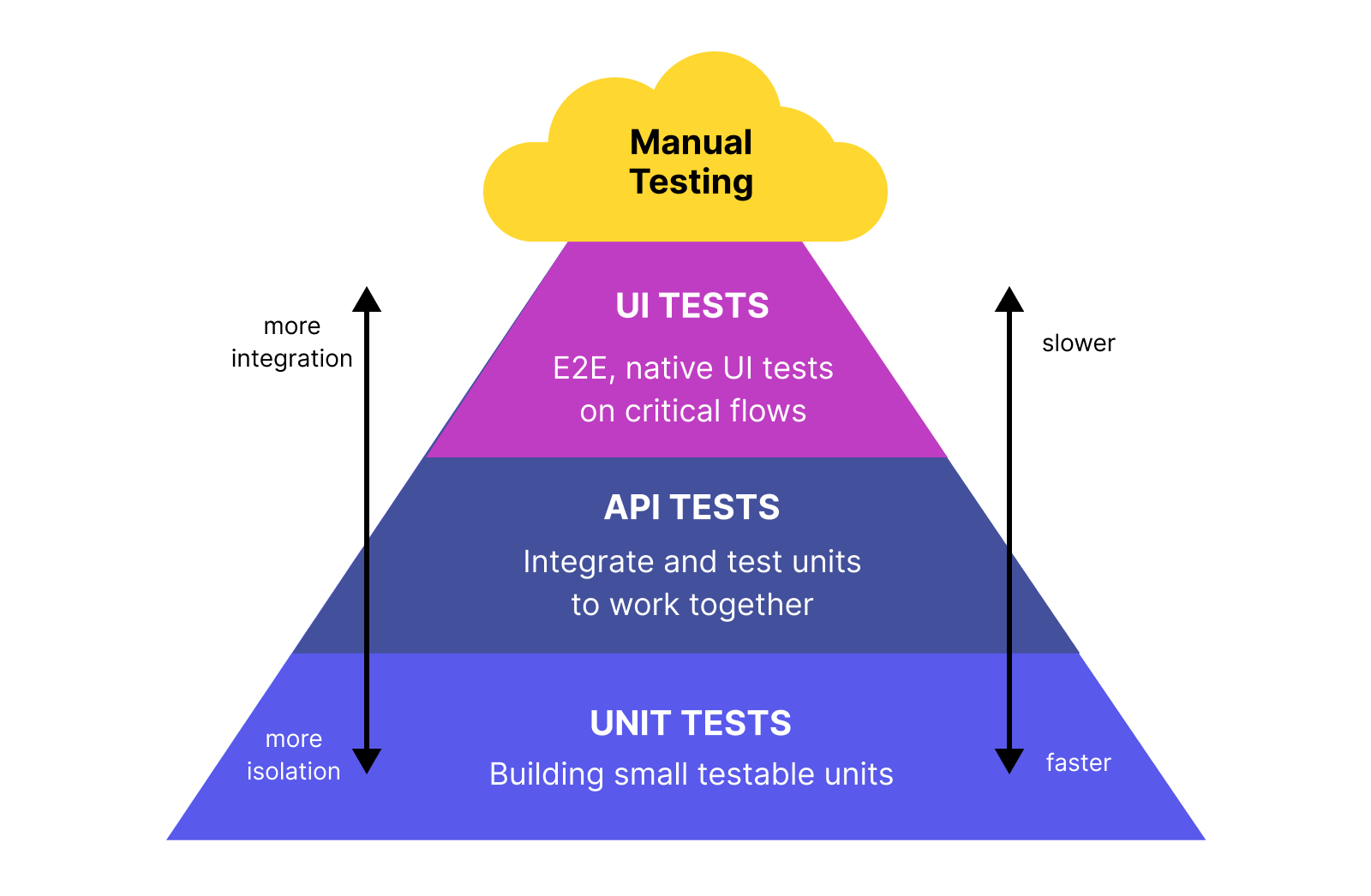To set up alias imports like @ in the Jest testing framework, we’ll walk through a simple tutorial using a TypeScript-based project. Aliases can help streamline imports, making them more readable and maintainable.
Prerequisites
- Node.js installed
- TypeScript project set up
- Jest installed and configured
Step 1: Set up tsconfig.json for Aliases
The first step is to define the alias in the tsconfig.json file. Suppose you want to use the alias @ for the src directory.
- Open your
tsconfig.jsonfile and add or modify thecompilerOptions:
{
"compilerOptions": {
"baseUrl": ".", // This is the base directory for resolving paths.
"paths": {
"@/*": ["src/*"] // Create alias '@' pointing to the 'src' directory.
}
}
}This configuration tells TypeScript that whenever it sees imports starting with @/, it should resolve them from the src directory.
Step 2: Update Jest Configuration for Aliases
Jest needs to understand the alias you’ve set up in tsconfig.json. For that, we can modify the Jest configuration, typically found in jest.config.ts or jest.config.js.
- Install the
ts-jestpackage if it’s not already installed:
npm install --save-dev ts-jest- Configure Jest in
jest.config.tsorjest.config.js:
export default {
preset: 'ts-jest',
testEnvironment: 'node',
moduleNameMapper: {
'^@/(.*)$': '<rootDir>/src/$1', // Map alias '@' to 'src' directory
},
moduleFileExtensions: ['ts', 'js', 'json', 'node'],
};moduleNameMapper: This option maps the alias to the actual directory path. Here,^@/(.*)$captures imports like@/utils/file, and<rootDir>/src/$1resolves tosrc/utils/file.
Step 3: Write Code with Alias Imports
Now that everything is configured, you can use the alias in your TypeScript files and tests.
For example, if you have a utility file src/utils/helper.ts:
// src/utils/helper.ts
export const add = (a: number, b: number) => a + b;You can import it using the alias @ in your test file:
// tests/helper.test.ts
import { add } from '@/utils/helper';
test('adds two numbers', () => {
expect(add(2, 3)).toBe(5);
});Step 4: Run Tests
With everything set up, run your tests using Jest:
npm run testJest will correctly resolve the alias @ and run the tests.
Conclusion
By following this tutorial, you can easily set up alias imports like @ in your Jest tests using TypeScript. It improves the readability of your imports and helps avoid relative paths like ../../../ when working on larger projects.
Complete Example
tsconfig.json
{
"compilerOptions": {
"baseUrl": ".",
"paths": {
"@/*": ["src/*"]
}
}
}jest.config.ts
export default {
preset: 'ts-jest',
testEnvironment: 'node',
moduleNameMapper: {
'^@/(.*)$': '<rootDir>/src/$1',
},
moduleFileExtensions: ['ts', 'js', 'json', 'node'],
};src/utils/helper.ts
export const add = (a: number, b: number) => a + b;tests/helper.test.ts
import { add } from '@/utils/helper';
test('adds two numbers', () => {
expect(add(2, 3)).toBe(5);
});Step 5: Debugging Common Issues
When using alias imports in Jest, there are a few common issues that you may encounter. Here’s how to resolve them:
1. Jest Doesn’t Recognize the Alias
If Jest is unable to resolve the alias, double-check the following:
- Jest Configuration: Ensure the
moduleNameMapperinjest.config.tsis correctly pointing to thesrcdirectory. It should be:moduleNameMapper: { '^@/(.*)$': '<rootDir>/src/$1', } tsconfig.jsonPaths: Ensure the paths intsconfig.jsonare correctly pointing to thesrcdirectory:"paths": { "@/*": ["src/*"] }
2. TypeScript Compiler Error
Sometimes, even if Jest works, TypeScript might still throw errors for unresolved modules. You can fix this by verifying the baseUrl and paths in your tsconfig.json file. Also, make sure TypeScript is properly configured to find the correct path using the alias.
3. Incorrect Module Paths
Make sure that the structure of your project matches what you’ve defined in both tsconfig.json and Jest’s moduleNameMapper. For example, if your project structure changes, you will need to adjust the path mapping.
Step 6: Adding Aliases for Multiple Directories
If you want to create multiple aliases for different directories (e.g., @utils, @components), you can add them in both tsconfig.json and jest.config.ts.
Modify tsconfig.json
{
"compilerOptions": {
"baseUrl": ".",
"paths": {
"@utils/*": ["src/utils/*"],
"@components/*": ["src/components/*"]
}
}
}Modify jest.config.ts
export default {
preset: 'ts-jest',
testEnvironment: 'node',
moduleNameMapper: {
'^@utils/(.*)$': '<rootDir>/src/utils/$1',
'^@components/(.*)$': '<rootDir>/src/components/$1',
},
};Now, you can use imports like:
import { add } from '@utils/helper';
import Button from '@components/Button';Step 7: Alias with ESM Modules (Optional)
If you are using ESM modules (import/export syntax) and Jest’s ESM support, the configuration will be slightly different. You might need to use the jest-esm-transformer or adjust the Jest transformer settings, but the alias setup remains similar.
Recap
Here’s a summary of what we covered:
- Setting up TypeScript aliases using
baseUrlandpathsintsconfig.json. - Configuring Jest to handle alias imports using
moduleNameMapper. - Writing tests with aliases for cleaner and more organized imports.
- Handling common issues related to alias paths in Jest and TypeScript.
By integrating alias imports in both your TypeScript and Jest configuration, you make your codebase more scalable and easier to maintain.

